The Independent's journalism is supported by our readers. When you purchase through links on our site, we may earn commission.
Back pain: causes and treatments
Historically, doctors would advise that patients take to their beds and remain there until the pain had subsided. We now know that restricting your movement in this way can lead to the pain persisting for longer and can cause increased problems with stiffness
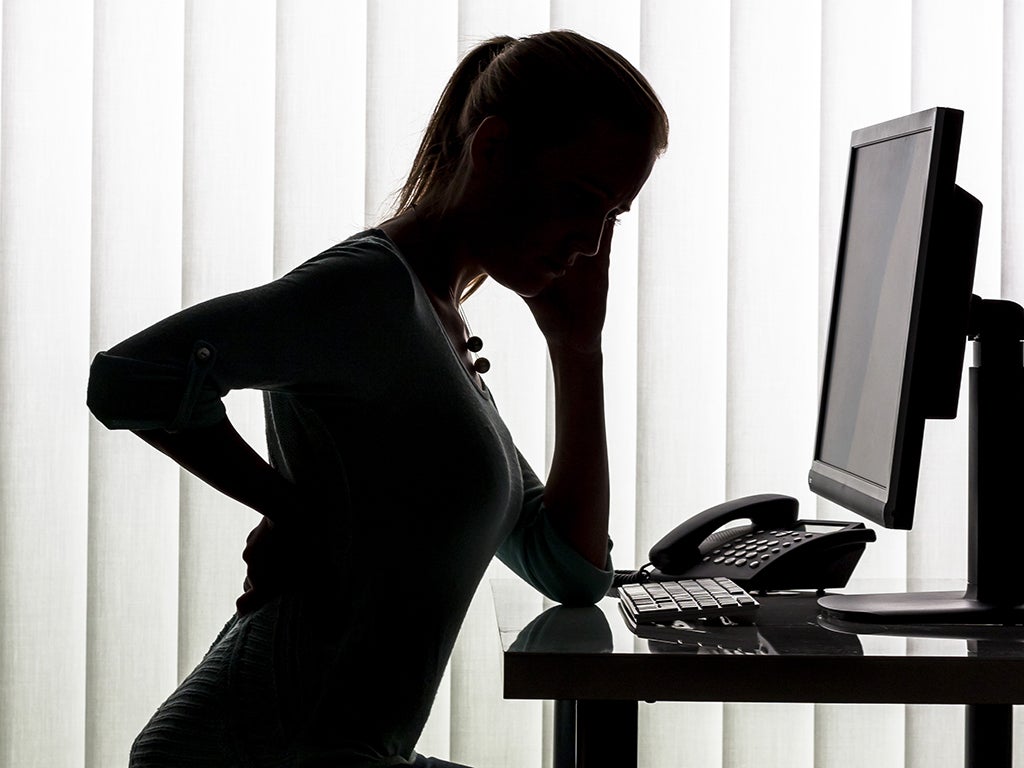
Your support helps us to tell the story
From reproductive rights to climate change to Big Tech, The Independent is on the ground when the story is developing. Whether it's investigating the financials of Elon Musk's pro-Trump PAC or producing our latest documentary, 'The A Word', which shines a light on the American women fighting for reproductive rights, we know how important it is to parse out the facts from the messaging.
At such a critical moment in US history, we need reporters on the ground. Your donation allows us to keep sending journalists to speak to both sides of the story.
The Independent is trusted by Americans across the entire political spectrum. And unlike many other quality news outlets, we choose not to lock Americans out of our reporting and analysis with paywalls. We believe quality journalism should be available to everyone, paid for by those who can afford it.
Your support makes all the difference.What causes back pain?
One in every four British adults will experience the discomfort and distress of back pain at some point in their lives. Accidents and strain injuries are some of the major causes. However, slouching, twisting, or spending a long time in one position, such as sitting down in the car on a long journey, can also be a cause.
As well as causing inconvenience and suffering to patients, back pain is also a cause of economic concern. The Office for National Statistics (ONS) says that back, neck and muscle aches cost the equivalent of 31 million working days in 2013.
Who is most at risk from back pain?
Anyone can suffer from back pain but some people are more susceptible. Risk factors include age, excess weight and pregnancy. Patients who have physically demanding jobs or lifestyles are also more at risk. Older patients with wear and tear changes in the spine, such as osteoarthritis, can also experience chronic back pain.
There are circumstances when people with back pain should not feel too worried and are unlikely to require medical attention. They include situations such as lower back pain after heavy lifting, or undertaking new physical activities. It is also fairly common for people to experience tension, stiffness or soreness in the lower back as a result of awkward or unsuitable posture, or unusual exercise.
Back pain as a result of accidents and injuries
One of the most common injuries causing back pain is a strained muscle. The problem is usually self-correcting, with time and rest being the main healers. A more significant injury is a slipped disc. This is where one of the strong discs of connective tissue that hold the spinal vertebrae together moves out of place and becomes trapped or pinched by the bones making up the back bone. In certain circumstances, the soft gel-like interior of the disc is squeezed through a gap in tough outer shell of the disc. This is referred to as a herniated disc.
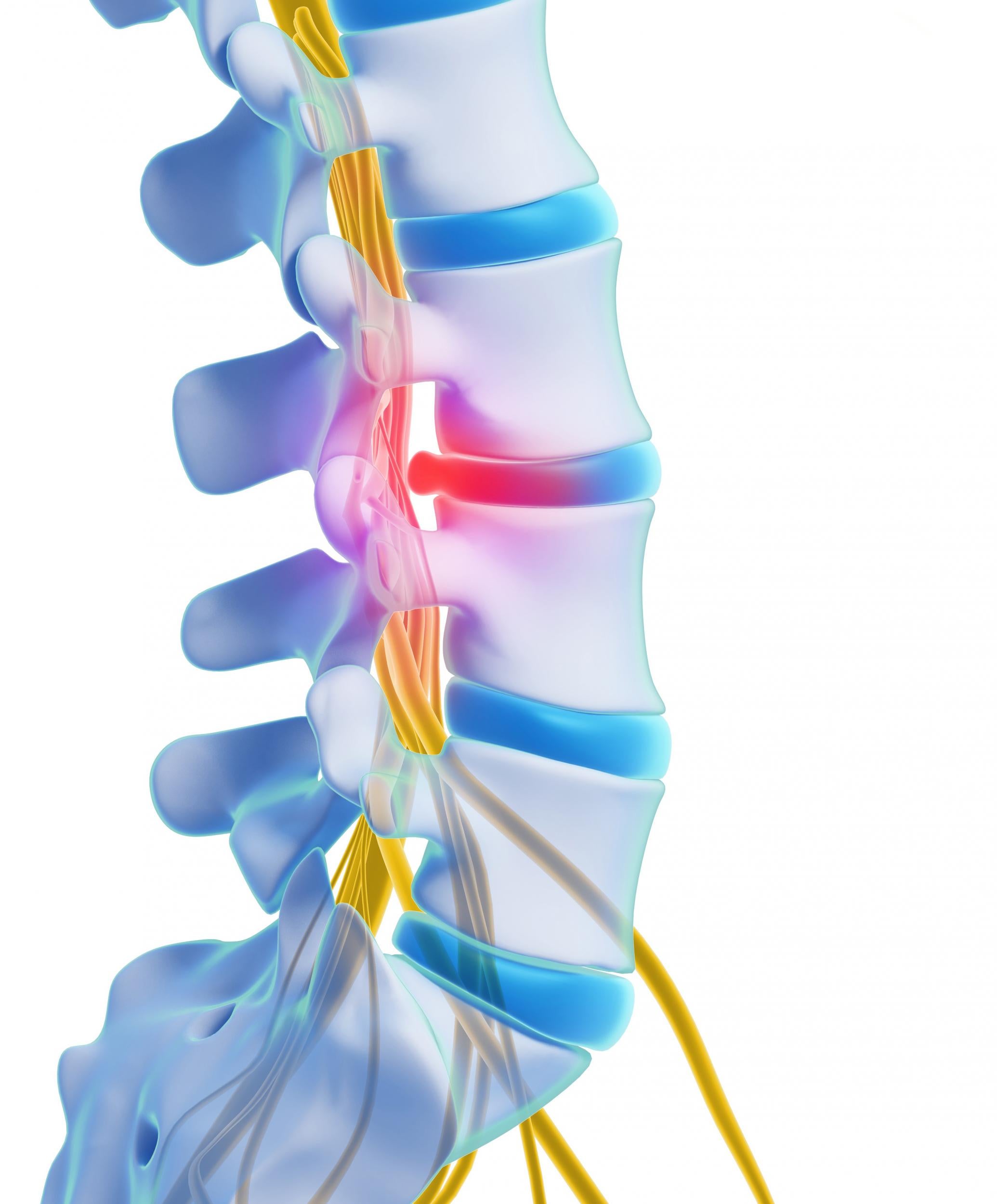
Slipped discs can often ‘shrink’ back to normal size over time. Doing what you can to return to normal mobility is the best way to ensure a speedy recovery. Painkillers such as anti-inflammatory drugs (for example Ibuprofen) can help. Ensuring that you lift properly is the best way to avoid a slipped disc.
Another common complaint leading to back pain is sciatica, or compression of the sciatic nerve. As the nerve is pinched, patients may experience pain in the lower back that might travel down their leg. This can be associated with numbness and tingling in the lower limbs. Sciatica can improve itself over time but exercise, painkillers and hot and cold compresses can help.
Poor posture
While back pain is often caused by muscle, ligament or tendon strain, many sufferers develop problems due to poor posture. Causes can include an unsuitable seating position at work, in the car and at home.
Standing workspaces are becoming increasingly popular and there has been much debate about whether or not they make a difference to both posture and overall health. Whatever your preference, it’s important to ensure that you do not place your back under unnecessary strain when sitting or standing.
Recommended treatment for back pain
Historically, the medical profession would advise that patients take to their beds and remain there until the pain had subsided. We now know that restricting your movement in this way can lead to the pain persisting for longer than is necessary and can cause increased problems with stiffness once patients start to get moving again.
For non-specific back pain, your GP will advise you to keep moving as much as is comfortable and to use over the counter pain relief. Patients often gain benefit from using topical painkillers such as Deep Heat, or anti-inflammatory gels. Alternating use of heat and cold is also an effective tool for dealing with muscular lower back pains.
Ensuring an effective but safe lifting technique is an important tool in preventing further back pain issues. It can be tempting to bend through the hips to reach down to pick something up off the floor, but in doing so, the forces transmitted through the spine are increased. To protect your back, try to bend at the knee in a ‘squat’ position when lifting.
Back pain sufferers can also sometimes benefit from complementary therapies, such as acupuncture and massage, and gentle exercises from www.arthritisresearchuk.org. Patients may also benefit from physiotherapy and osteopathy.
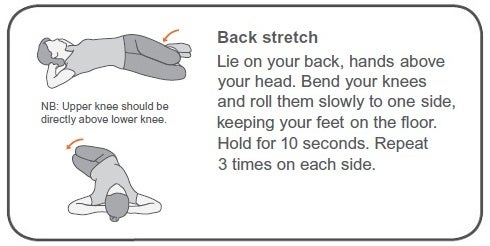
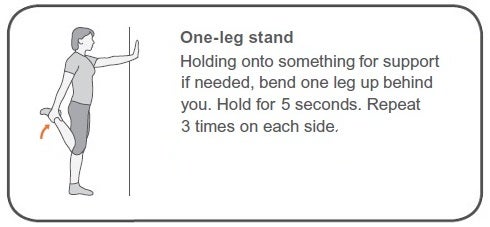

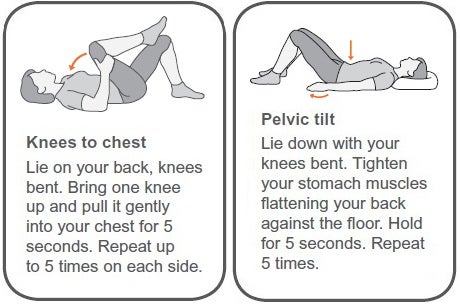
When you do need to seek treatment for back pain
There are certain circumstances in which people suffering with back pain should seek professional medical advice. They include people who experience back pain that has no obvious initiating cause, lasts more than six weeks, or is accompanied by symptoms such as persisting pins and needles, and loss of sensation or weakness of the lower limbs.
Other symptoms requiring urgent further investigation include back pain associated with the loss of bladder or bowel control, which could indicate cauda equina, the medical term for a compromised spinal cord. If you have back pain and lose control of your bladder or bowels, you must immediately seek medical attention.
Sufferers should also seek medical advice if they experience back pain with associated weight loss, fever, upper back or chest pain, or constant pain that is not affected by movement. People with longer term conditions, such as osteoporosis or cancer, should also pay particular attention to back pain.
Prevention rather than cure is best for back pain
Anyone who has experienced back pain will know how debilitating it can be. In most cases, time can be a great healer and symptoms will ease. Your doctor will be able to offer advice and further investigation in situations where back pain does not ease over time.
It is important to take steps to avoid back injury and strain in the first place. As well as taking care not to place your back under unnecessary strain, it is also worth taking steps to ensure that you do not end up suffering back pain as a result of poor posture or work station design.
In the longer term, exercises that strengthen your core abdominal and lower back muscles will help to reduce your chances of suffering back pain. Taking part in regular physical activities, such as walking, swimming or yoga can be great tools to ensure a healthy back, as well as having significant positive effects on your overall health.
Lower back pain is usually caused by muscle strain or injury, and there are many simple steps that patients can take to try and ease their symptoms. However, if patients are concerned they should see their GP.
Dr Alexandra Phelan is an NHS GP and member of the Pharmacy2u.co.uk Online Doctor Service team. Visit here for further advice about treating back pain.
Join our commenting forum
Join thought-provoking conversations, follow other Independent readers and see their replies
Comments